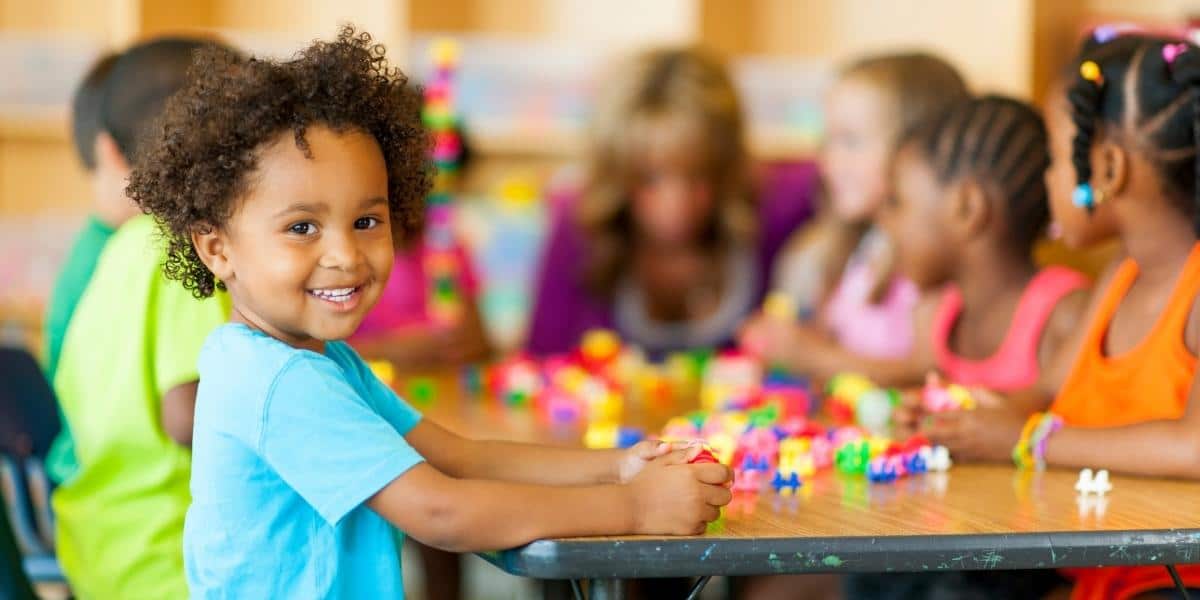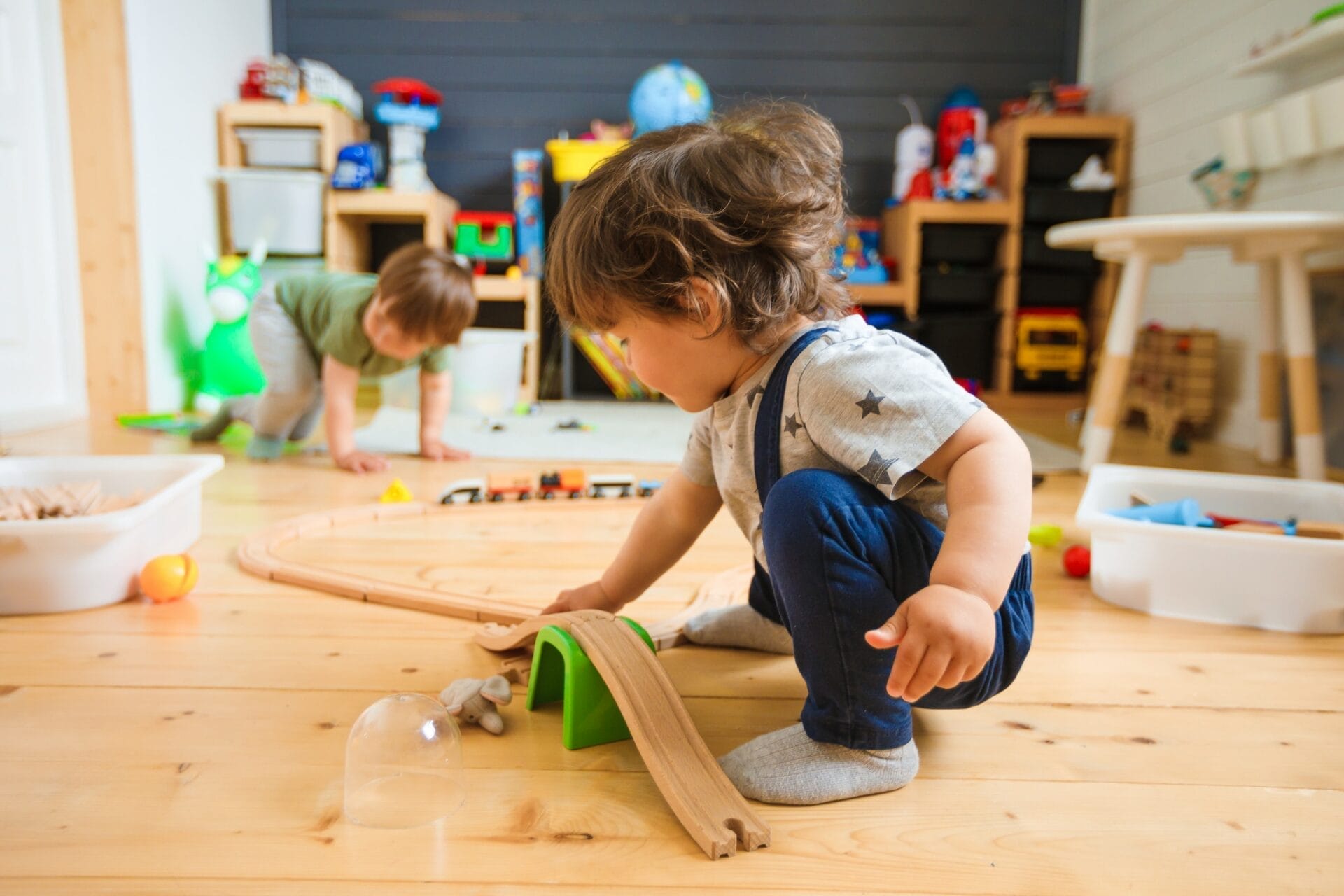How Childcare Near Me Can Help Build Confidence And Independence
Wiki Article
The Role of Day Care in Fostering Social Skills and Very Early Knowing
Day care works as a considerable atmosphere for young kids, promoting important social communications that promote very early discovering. In this organized setting, youngsters engage with peers and caretakers, developing crucial interaction and collaboration skills. As they navigate play and different activities, they discover to resolve disputes and build psychological knowledge. Recognizing the subtleties of these interactions discloses the profound influence daycare has on a kid's advancement, forming their future partnerships and scholastic preparedness. What certain abilities do kids acquire in this setting?The Importance of Social Communication in Childcare
While many parents acknowledge the relevance of very early childhood years education and learning, the function of social communication in daycare is commonly underestimated. Daycare settings offer children with important opportunities to engage with peers, fostering important social skills. During these developmental years, children find out to navigate various social dynamics, such as sharing, participation, and problem resolution. Connecting with diverse age and personalities enhances their capability to adjust to different environments and create empathy towards others.
Building Communication Skills Through Play
Play acts as an effective medium for youngsters to build essential communication skills in day care setups. Via various play tasks, youngsters involve in conversations, express their thoughts, and discover to pay attention to others. Parlor games, for example, motivate them to use language in different contexts, advertising vocabulary growth and understanding of social signs.
Furthermore, narration during playtime enables children to share ideas and emotions, aiding them develop narrative skills and self-confidence in their spoken expressions. In general, play not just functions as a satisfying activity but likewise as a vital system for establishing the interaction abilities necessary for successful social interactions in later life.
Urging Teamwork and Synergy
Cooperation and team effort are crucial skills that kids can grow in day care atmospheres. With different team tasks, such as constructing jobs or joint video games, kids find out to share duties and work towards typical goals. These communications promote an understanding of the importance of listening to others, discussing functions, and endangering when necessary.In day care settings, caretakers commonly produce opportunities for children to engage in synergy by encouraging them to take part in team tasks. This not only assists kids create social bonds yet additionally cultivates a sense of belonging and area.
As they browse these participating experiences, youngsters gain important insights into the characteristics of working with peers. They find out to appreciate varied viewpoints and identify that each participant contributes distinctively to the team initiative. Inevitably, these very early lessons together and synergy prepared for much healthier relationships and reliable cooperation in future social and scholastic settings.
Structured Discovering Activities and Cognitive Growth
Structured knowing tasks play an important role in cultivating cognitive advancement in children (Child Care Near Me). These tasks, that include challenges, narration, and hands-on experiments, promote critical thinking and analytic skills. In a childcare setting, structured knowing encourages youngsters to involve with their peers, enhancing their ability to process information and recognize numerous concepts
Through guided play and interactive jobs, children establish foundational skills such as numeracy and proficiency. As an example, tasks centered around numbers can assist children comprehend mathematical concepts, while storytelling improves language purchase and comprehension. Furthermore, structured learning allows teachers to assess developing progress and tailor tasks to individual learning needs.

Integrating a varied series of structured tasks not just promotes cognitive growth but additionally prepares kids for future academic success. By providing a balanced setting that cultivates expedition and query, daycare programs play a vital role in shaping the cognitive capacities of young learners.
Fostering Psychological Knowledge and Self-confidence
Emotional intelligence and self-confidence are important components of a child's advancement, enhancing the cognitive skills cultivated with structured understanding tasks. In childcare setups, kids are given with chances to share their feelings and engage in social communications, which are critical for constructing emotional awareness. Through directed play and team activities, children discover to identify their sensations, identify those of others, and develop empathy.Additionally, interaction with peers and caretakers assists to grow self-confidence and strength. Favorable reinforcement and support from grownups empower children to take threats and face obstacles, fostering a feeling of achievement. As they navigate social dynamics, kids construct self-confidence in their capacities to interact, collaborate, and solve conflicts - Child Care Center. This caring environment enables the steady development of emotional intelligence, which is important for future social partnerships and overall health. As an outcome, daycare plays a significant function in cultivating both psychological knowledge and confidence in little ones
Often Asked Questions
How Can Moms And Dads Choose the Right Daycare for Their Child?
Parents need to think about factors such as location, team credentials, safety and security requirements, curriculum, and evaluates from various other moms and dads when selecting the right childcare for their kid, guaranteeing it aligns with their kid's developing demands and family worths.
What Age Is Finest for Starting Childcare?

Just How Does Daycare Impact Children's Behavior in the house?
Day care frequently favorably affects kids's habits at home by boosting social abilities, promoting independence, and encouraging emotional policy (Child Care Near Me). Consequently, youngsters may display better communication and collaboration, leading to even more unified family dynamicsAre There Any Type Of Downsides to Daycare Participation?
Yes, there are disadvantages to day care presence, consisting of prospective separation anxiousness, direct exposure to ailments, and irregular caregiving. These elements can impact a kid's emotional health and adjustment at home, impacting general family members characteristics.Just How Can Moms And Dads Assistance Social Abilities Found Out at Day Care?
Moms and dads can support social skills learned at childcare by helping with playdates, motivating cooperative activities, modeling positive communications, talking about sensations, and enhancing sharing and communication in your link home, thereby enhancing their youngster's social development and self-confidence.Daycare serves as a substantial setting for young kids, helping with crucial social interactions that promote early learning. Daycare setups give kids with invaluable opportunities to engage with peers, fostering important social skills. Play serves as an effective medium for children to build important communication abilities in childcare setups. In day care settings, children are provided with opportunities to reveal their feelings and engage in social communications, which are vital for developing psychological Bonuses awareness. Childcare usually favorably influences children's habits at home by enhancing social abilities, advertising self-reliance, and encouraging emotional policy.
Report this wiki page